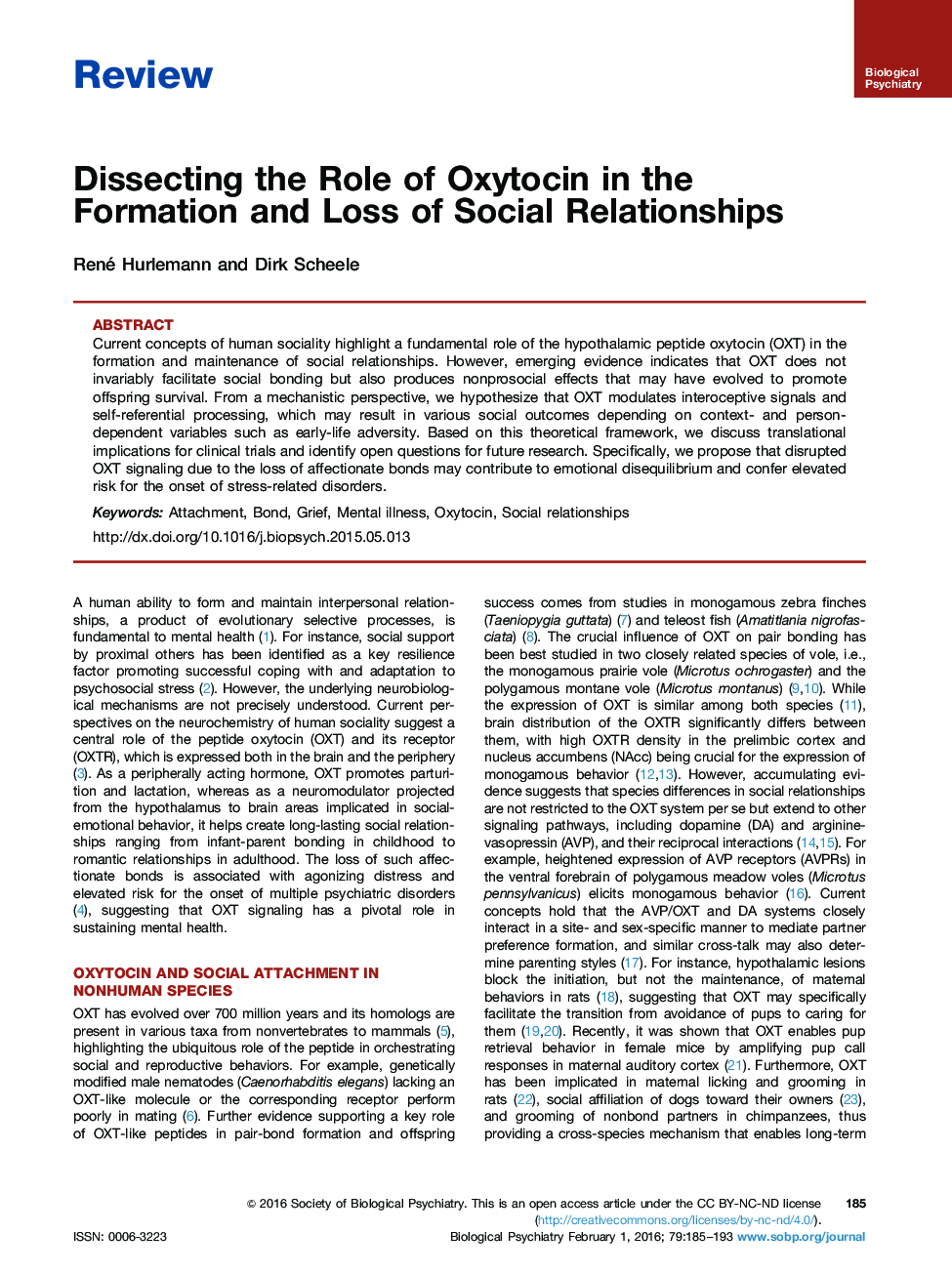| Article ID | Journal | Published Year | Pages | File Type |
|---|---|---|---|---|
| 6226640 | Biological Psychiatry | 2016 | 9 Pages |
Current concepts of human sociality highlight a fundamental role of the hypothalamic peptide oxytocin (OXT) in the formation and maintenance of social relationships. However, emerging evidence indicates that OXT does not invariably facilitate social bonding but also produces nonprosocial effects that may have evolved to promote offspring survival. From a mechanistic perspective, we hypothesize that OXT modulates interoceptive signals and self-referential processing, which may result in various social outcomes depending on context- and person-dependent variables such as early-life adversity. Based on this theoretical framework, we discuss translational implications for clinical trials and identify open questions for future research. Specifically, we propose that disrupted OXT signaling due to the loss of affectionate bonds may contribute to emotional disequilibrium and confer elevated risk for the onset of stress-related disorders.
